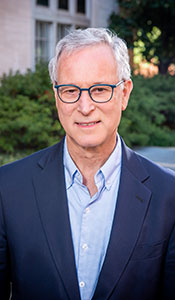This month’s blog post launches a series highlighting the three main categories that comprise our UAB NF Program – clinical care, research, and education. I’ll provide an overview of our program in these areas, while upcoming posts will give more in-depth information about specific aspects of the program and feature insights from our clinicians and scientists.
Pediatric and Adult NF Clinics
The UAB Neurofibromatosis Clinic provides integrated care for children and adults with all forms for NF, including NF1, NF2, and schwannomatosis. Our patients receive care from a multidisciplinary team of specialists in dedicated adult and pediatric NF clinics. While we still provide some care via telemedicine, we also see adults and children every Thursday in the John Whitaker Clinic Building at UAB , and children at Children’s of Alabama every other Tuesday afternoon Both newly diagnosed and follow-up patients are seen in both clinics.
Children and adults with NF have access to UAB neuro-oncology specialists, who assist with the management and treatment of NF-related neuro-oncological issues, including brain and spinal tumors and complex plexiform neurofibromas. With the recent departure of Mina Lobbous, MD, one of the adult neuro-oncologists who worked with patients in our NF Clinic, Division Director of UAB Neuro-Oncology Burt Nabors, MD, has been helpful in ensuring our patients in the adult NF clinic still have the same access to specialists in the neuro-oncology group. Adults with either MPNSTs or plexiform neurofibromas that require additional assessment and monitoring are also being referred to oncologists with experience in treatment of these tumors.
Our pediatric program features a dedicated pediatric neuro-oncology clinic, led by Katie Metrock, MD, that assists in the management and treatment of brain and spinal tumors, optic pathway gliomas, complex plexiform neurofibromas, and MPNSTs. Also, we coordinate with the neuropsychology group to schedule neuropsychological evaluations for patients with neurocognitive issues. Because these evaluations are time and labor intensive, we are working with this group to develop screening tools to identify issues that may need further evaluation.
NF Research Program and Education Initiatives
We have established a large research program focused on conducting studies to understand the genetic mechanisms involved in NF and to develop therapies that restore function to the mutated NF1 gene or gene product. These efforts include the use of medications as well as gene editing and gene replacement technologies. Our program has had a pioneering role in this research approach for NF1 and has developed many funding resources to enable it, including the National Institutes of Health (NIH) and the Gilbert Family Foundation (link). In addition, our program recently received funding from UAB to develop a new, two-year research program in gene therapy for NF.
A cornerstone of our research program is the UAB Medical Genomics Laboratory, which is viewed in the medical and scientific communities as the gold standard for NF genetic testing. The laboratory has identified mutations in more than 8,000 unrelated NF1 patients and has identified more than 3,000 NF1 mutations, representing the world’s largest repository of NF mutations. The previous long-serving director of the UAB Medical Genomics Laboratory, Ludwine Messiaen, PhD, recently retired from UAB, and a search is ongoing for a permanent director of the lab.
UAB also continues to serve as the national coordinating center for the NF Clinical Trials Consortium, a collaborative group of 15 primary and 10 affiliate clinical centers across the country and in Australia dedicated to conducting clinical trials of the most promising drug therapies for all forms of NF. The Consortium was formed in 2006 with funding from the U.S. Army Medical Research and Material Command; it serves as an important vehicle to accelerate the pace of research by giving patients the opportunity to participate in clinical trials around the country.
In the educational arena, we are currently planning a virtual UAB NF Symposium Family Day, scheduled for Saturday, April 30. As we have for the past two years, we are holding the event virtually this year to limit the spread of COVID-19. This free, half-day event is one of our major educational initiatives, and it gives patients and families the opportunity to hear a series of presentations on a range of NF-related topics from clinical experts. The agenda and list of speakers will be posted soon on our UAB NF Program website (link) and Facebook page (link).
